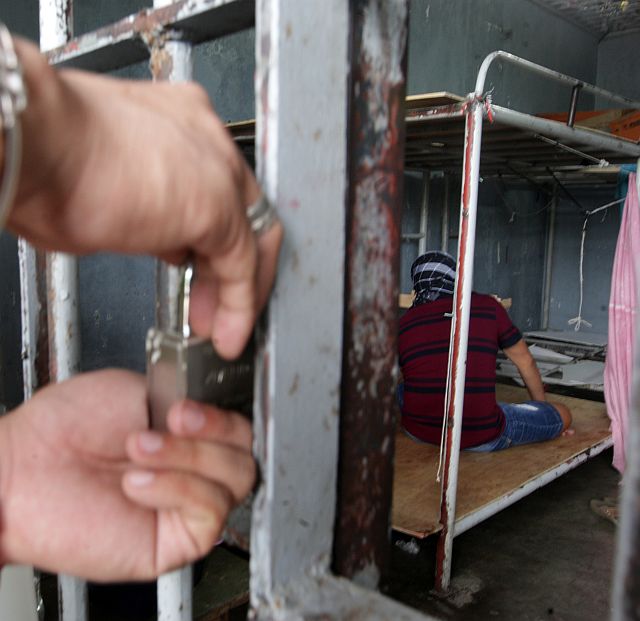
When suspected drug lord Alvaro “Barok” Alvaro was detained at the Provincial jail, he was placed in isolation for his safety. He now joins other prisoners at the regular cells.
CDN FILE PHOTO
HIGH profile drug personality Alvaro “Barok” Alvaro is now out of isolation and transferred to a regular cell immediately after the signal jammers were installed last month.
CPDRC officer in charge Bobby Legaspi said they transferred Alvaro to a cell that is close to where the jammers are installed.
“Barok is actually out of isolation,” he said. “He’s out in the regular cells now. He’s being monitored. I think when he came in, it was just for his protection, not because he did something bad. But I put him some place close to the jammers so wala’y communication means,” Legaspi said.
Barok, who hails from Danao City, surrendered to the National Bureau of Investigation in June last year and is currently detained at the CPDRC while his charges for illegal gun possession and the anti-illegal drugs law are being tried in court.
Alvaro surrendered to the NBI in Tagbilaran, Bohol, after another drug suspect Jeffrey “Jaguar” Diaz was killed in a police operation in Las Piñas a week before.
Alvaro is allegedly considered as Diaz’ next-in-command in the province of Cebu. He surrendered because he feared for his life and his family’s safety.
Jammers
Despite two signal jammers installed at the CPDRC last month, several cellular phones were still recovered from the inmates during the greyhound operation conducted around three weeks ago.
One of the cellular phones was recovered from Alvaro, a situation reminiscent of another greyhound operation conducted last year, where a sim card was recovered under his pillow, leading authorities to believe that he was still in contact with his family members.
In a previous interview, Legaspi explained they will work in partnership with the Philippine Drug Enforcement Agency, the Philippine National Police, as well as the army to determine what kind of signal jammers would be ideal for the facility, in addition to the two already installed.
“I understand that with the jammers, we are going in phases,” he said. “I think we need to look at that. Our partnership with PNP and PDEA, they’ll help us out and the army. They’re going to help us out in identifying what unit we’ll actually need.”
Legaspi said he received reports that despite the two signal jammers being operational 24/7, there were areas in the facility that were not affected, which the inmates took advantage of to place calls.
“Actually, we have reports also from the inmates now (that) it’s working in their area so they’re just going to other places where it’s not affected,” he said.
He said they are looking at installing stronger signal jammers although they are not going for high-powered ones as this could also affect other areas in the vicinity.
“Should we go with something stronger? Definitely we need something stronger but we don’t want to go with something high-powered because it might also affect neighbors across the street,” he said. “But I think we have to go with something higher now.”
CPDRC Manual
Under the proposed CPDRC Manual sponsored by Provincial Board Member Sun Shimura, cellular phones are strictly prohibited among inmates and possession of the cellphones is considered a grave offense.
A disciplinary board will then be tasked to investigate the facts of the alleged misconduct and is authorized to impose disciplinary punishment, which includes reprimand, temporary or permanent cancellation of some or all recreational privileges, suspension or cancellation of visitation privileges, extra-fatigue duty or exercise for sentenced inmates, and close confinement in a cell not exceeding seven days, among others.
Considering that the CPDRC manual will still undergo its second reading, Shimura said that it is possible that the installation of stronger signal jammers could be included, in light of the persistent problem of cellular phones being smuggled inside.
“Yes, we can insert that during the second reading,” Shimura said in a text message to Cebu Daily News.